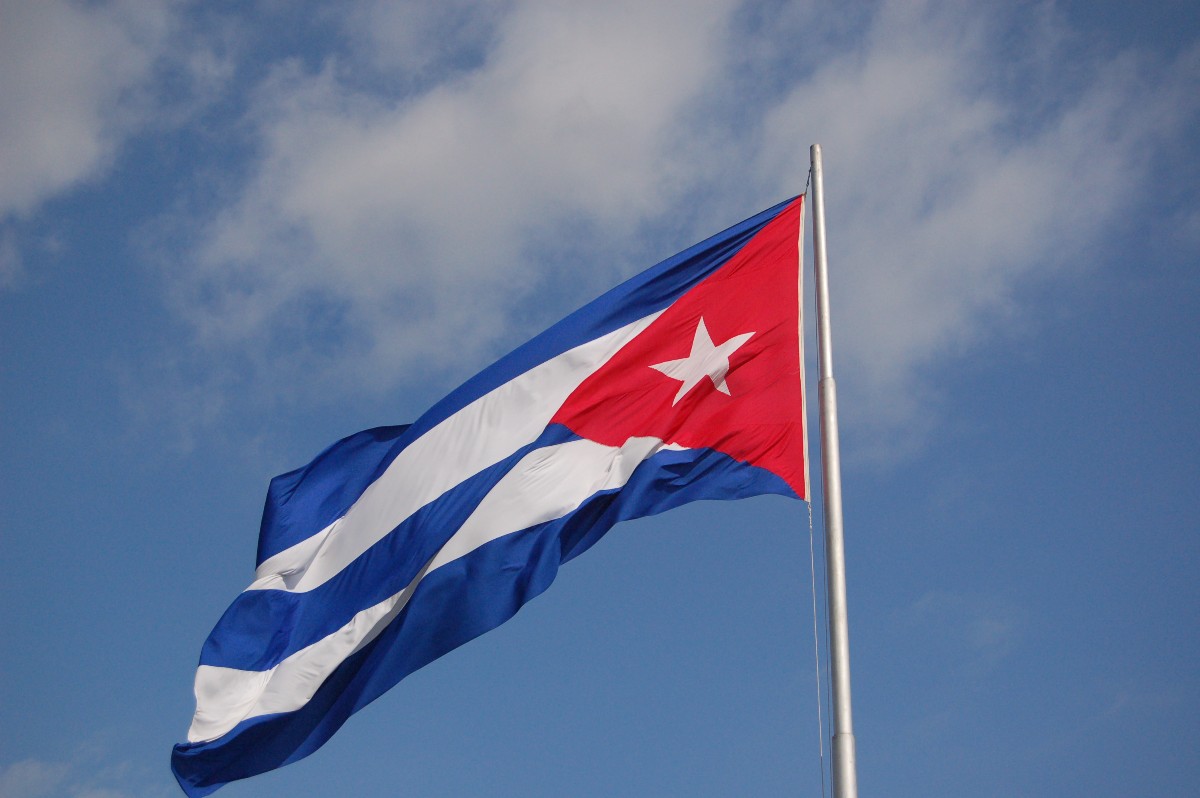
Event Recap: The Role of Mil-to-Mil Engagement in Rebuilding the U.S.-Cuba Relationship
On April 20th, American Security Project formally launched its Cuba Program in Miami, Florida. “Pathways to the Future of US-Cuba Relations” examines how to build confidence between Cuba and the United States, and the benefits of closer relationships between the two governments and peoples through the lens of national security.
On May 26, American Security Project hosted a roundtable discussion on the role of military-to-military engagement in rebuilding the U.S.’ relationship with Cuba. The discussion previewed an ASP Perspective Paper on the topic and marked ASP’s first public event on the subject.
Helmed by three speakers, Brigadier Stephen A. Cheney, USMC (Ret.); Colonel Ken Robbins, USA (Ret.); and Commander Louis Orsini, USCG (Ret.), the discussion focused on areas in which the two countries could collaborate on. Drawing from personal anecdotes or historical precedence, the participants highlighted maritime crime and trade, search-and-rescue, and humanitarian efforts as areas of opportunity.
Having had extensive experience in Cuba, Orsini offered that the recognition of sovereignty as crucial. He cites the existence of the Guantanamo Bay Naval Base as an example. Despite the U.S.’s annual check, the Cuban Government has declined further payments. Thereby, the need for “players, not benchwarmers” or individuals who understand the rules of engagement and the rules of law are necessary to impress this understanding of legitimacy.
Orsini furthered the discussion by offering an overview of the current status of military-to-military engagement in Cuba. The U.S. Coast Guard has had successful joint efforts with the Cuban Border Guard in drug interdiction. Orsini singled out the current Coast Guard officer serving in the Embassy as a drug specialist. This officer’s presence alone has enabled an understanding between countries, as he now has privileges of accompanied access in and out of Havana. Further, during a recent botched operation, where an unconscious pilot had flown into Cuban airspace, American forces were able to communicate with the Cuban military and were allowed to trail the aircraft. These examples alone indicate that opportunities for trust are possible.
Realizing these possibilities, the dialogue turned to an understanding of what benefits could yield from fostering such a relationship. Ken Robbins noted that the Cuban military has developed intelligence in areas inaccessible to the U.S., namely North Korea. This already suggests an opportunity for intelligence cooperation. Recognizing the overreach of the island’s current administration, Robbins noted that transition between regimes are rarely smooth, especially in Cuba. Therefore, any relationship with the new regime is crucial, especially for crisis management. After all, both mass migrations from the island were fueled by political changes. With the Cuban Adjustment Act still at large, any form of partnership is necessary between countries.
Given the recent introduction of the National Defense Authorization Act for Fiscal Year 2017 in Congress, the creation of legislation that is inclusive to and understanding of a holistic military-to-military relationship with Cuba is crucial. Current legislative drafts point to a non-inclusive language, narrowing military-to-military relations only to humanitarian and rescue relief. Indeed, while, Louis Orsini offered his own anecdotes of the current, successful joint efforts of the U.S, Coast Guard and the Cuban Border Guard in drug interdiction, the Coast Guard remains under Department of Homeland Security. Legislation has yet to move any opportunities of cooperation into the purview of Department of Defense, which would open up further possible avenues to intelligence cooperation or even joint exercises.
The current Cuban political and cultural climate cannot be ignored. While Cuba remains a “wall” to drug smuggling efforts, the rise of the Cuban middle class makes the country an easy target to become a transit spot. Further, the Cuban military remains tied to its economy, and with a strong domestic civil-military relationship, the people are unlikely to reject any military state.
Yet, these concerns alone cannot hinder the creation of a military-to-military relationship with Cuba. Rather, firm recognition of sovereignty and trust will be the starting points with which the U.S. will begin this partnership. Therefore, Robbins suggested that similar to Eastern Europe, with the end of this regime, the U.S. could support the de-politicization of Cuba’s current non-commissioned officer corps.
ADDITIONAL RESOURCES:
- Miami at the Center of the Cuban- American Relationship
- Cuba Preview: Obama Visit and Embargo Easing
- New Cuba Crisis Means It’s Time to Kick Out Old Policies
- PODCAST: David Ferris talks to ASP about Cuban Energy
- Andrew Holland on Cuban Energy
- Perspective: Potential Areas of Cooperation Between the U.S. and Cuba
- ASP Supports Cuba’s Removal from State Sponsors of Terrorism List
- Bringing Cuba Into the Digital Age
- U.S. – Cuban Relations on the Edge of Formalization
- ASP in Inter American Dialogue: Geopolitics and economics are bringing U.S. foreign policy back to the Caribbean
- Energy Security in the Caribbean





